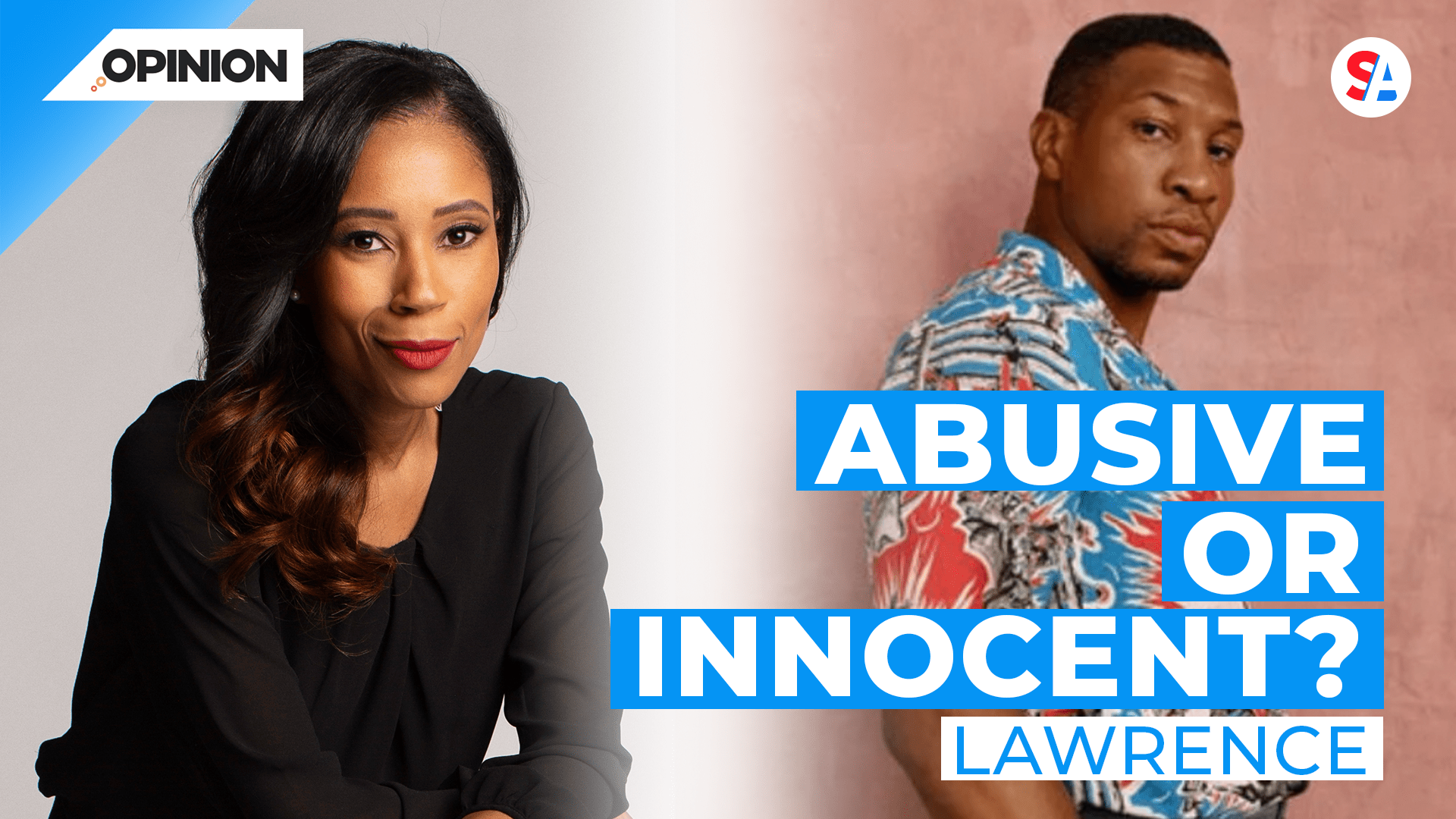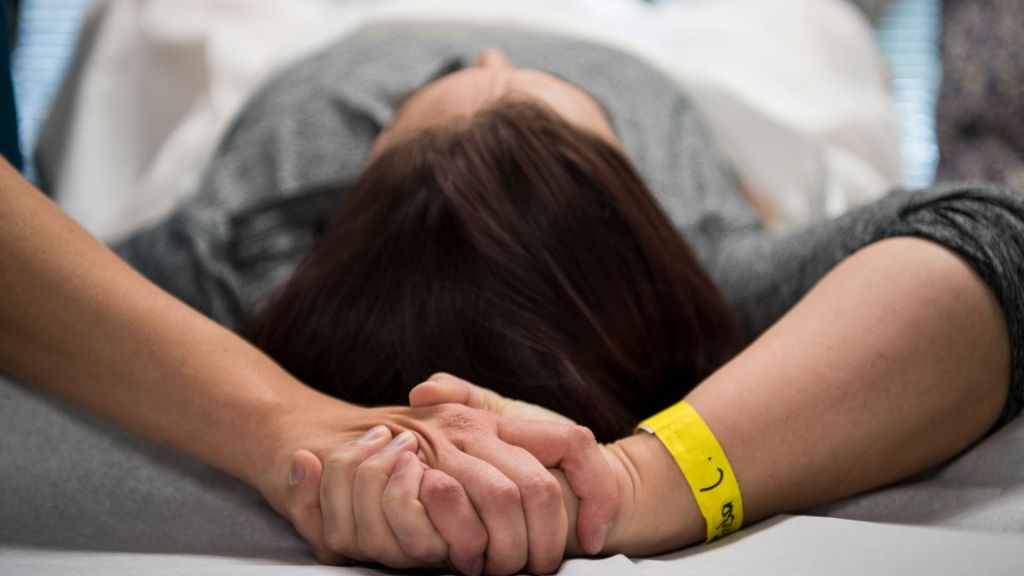
Commentary
-
Our commentary partners will help you reach your own conclusions on complex topics.
Over the weekend, actor Jonathan Majors’ banner year in Hollywood was interrupted by an arrest for domestic violence. The NYPD booked the 33-year-old star of the most-recent Creed and Ant-Man sequels on charges of strangulation, assault and harassment of a 30-year woman believed to be Majors girlfriend. Now although she reportedly was treated in a hospital with injuries to her head and neck, the next day Majors’ attorney said the woman recanted her police statement twice and that video of the incident shows that Majors did nothing wrong.
Now while I’m not here to convict Majors as the criminal justice system must still play out, I am concluding that our society still has so much work to do as it concerns understanding how abuse works. The online conversations surrounding the allegations against Majors were abhorrent. It’s like folks slept through MeToo. For example, two filmmakers came forward on Twitter indicating that Majors has a history of toxic behavior that was known in his circles at Yale and in his theater groups. Now these men were unwilling to share names of individuals that Majors had allegedly harmed and they were condemned for it.
Some people demanded to know why they didn’t come forward sooner; others spewed hate. One of the filmmakers reported experiencing threats and “queerphobic” comments. The other filmmaker shut down his Twitter account, shortly after Disney’s Marvel (which made Ant-Man sequel) started following him. Regardless of the veracity of those filmmakers’ remarks about Majors, how they were treated is exactly why people don’t come forward about abusers. Our society punishes individuals who speak out more than we punish the alleged abuser, particularly when they’re celebrities. An entire court in England said it was fair to call Johnny Depp a wife beater, yet Amber Heard was roasted in the court of public opinion and the court of law here for implicitly doing so.
It took over a hundred women to speak out against now-convicted rapist Harvey Weinstein before he faced any consequences, and that’s despite the fact that it was an open secret in Hollywood for so long that he was an abuser. Actor Brendan Frasier, blacklisted for more than decade because he spoke out against his high-powered assailant. People remain silent because our society is inclined to uplift abusers and it’s poised to victim-blame. This is what happens when we look to maintain systems of oppression. The person with more power, or the individual whose narrative gets to preserve power structures, often gets the benefit of the doubt.
We also often want to think of the survivor brought it upon themselves somehow, as though it means we’re less likely to face a similar fate by simply existing. This condemnation of accusers and doubting of domestic violence survivors, it was on full display this weekend, as were racial conversations. Given that Majors is a black man and his accuser is reportedly a white woman, the situation conjured the historic narrative of white women crying wolf about Black men, knowing that the system is pitted against them and also that the system is going to use protection of white female innocence as a means of advancing anti-Blackness. This is all a la the prosecution of boxer Jack Johnson in 1912, the murder of Emmett Till, the 14-year old, in 1955.
The history is alive and well. We just saw Amy Cooper in Central Park in 2020 try to leverage her white womanness to the detriment of bird watcher Christian Cooper. It’s real. At the same time, alleged interracial domestic violence does not warrant a pass simply because of historic wrongs. We still must invest in investigating the incidents and do so with equal fervor as we do other domestic violence cases. Now that being said, our society must do better in terms of treating domestic violence seriously. Not only is it prevalent, in that 1 in 4 women and 1 in 9 men will experience severe intimate partner violence in their lifetime, but it’s often not talked about enough. If you’re a numbers person, well, according to the National Coalition Against Domestic Violence, victims of intimate partner violence lose a total of 8.0 million work days, paid work days, each year. The cost of intimate partner violence exceeds $8.3 billion per year. The business case is just as big as the case in favor of humanity. Domestic violence is harmful to our society, claiming the lives of police officers and it’s often behind many who commit mass shootings. We need to take these matters seriously, and it’s evident that we don’t given much of the discourse that was on display this weekend.
Over the weekend, a number of anti-domestic violence advocates took Majors’ arrest very seriously given that he was charged with strangulation. And that’s because they know that strangulation survivors are some 750 percent more likely to be killed by the abuser in the future. A lot of people don’t know that—but they should. We’ve gotta do a much better job at educating on domestic violence and abuse. Again, we don’t know how Majors’ case will shake out — he has maintained his innocence and according to his attorney, the woman has recanted. But we do also know that recantation is very common when it comes to domestic violence. We also know that we need people to do better. It’s not only that it’s survivors that are watching how individuals are speaking out about survivors and allegations, but also because these abusers are watching and seeing what they can get away with.
-
Why didn’t Netflix, Oscars vet Karla Gascón’s social media?
Karla Sofía Gascón, star of the Netflix show Emilia Pérez, had her bid for an Oscars nomination disrupted recently when some of her old social media posts from 2016-2022 went viral. In various statements, Gascón criticized major world religions, including Islam, Christianity and Catholicism, called George Floyd a “drug addict swindler,” and even called the… -
FCC investigation into Comcast a blatant attack on free speech
The Federal Communications Commission’s (FCC) Enforcement Bureau launched an investigation into Comcast for allegedly “promoting invidious forms of DEI in a manner that does not comply with FCC regulations.” The FCC’s action follows President Donald Trump’s executive order ending diversity, equity and inclusion (DEI) programs across the federal government and directing U.S. agencies to “encourage… -
Hold Trump accountable for defying the rule of law
Since his return to the White House less than three weeks ago, President Donald Trump has enacted a series of executive orders and actions that have drawn both criticism and support. Legal and policy experts have raised concerns, with some arguing that these measures are illegal, unconstitutional, and a threat to U.S. national security. Some… -
Trump’s foreign policy is ‘America Alone,’ not ‘America First’
President Donald Trump is radically remaking U.S. foreign policy just days into his second term, issuing threats against close U.S. allies and partners like Denmark, Canada, Panama, Colombia and more. European powers are scrambling to prepare for any scenario where the United States under Trump seeks to conquer Greenland through military force, an act which… -
Trump’s immigration crackdown threatens US innovation
President Donald Trump’s immigration crackdown, which has led to large-scale arrests across the U.S., has drawn both praise and outrage. Trump and his supporters argue that his actions protect national security and American jobs by targeting undocumented immigrants. Opponents, however, contend that mass deportations not only separate families and harm communities but also remove workers…
Latest Opinions
-
 Getty Images
Getty Images
NFL scouting combine: How much faster can these players run?
-
 Getty Images
Getty Images
James Cameron seeks New Zealand citizenship following ‘horrific’ Trump re-election
-
 Getty Images
Getty Images
San Francisco DA Charges 11 in SNAP fraud scheme involving $4M
-
 Getty Images
Getty Images
California’s minimum wage increase led to job losses, higher prices: Study
-
 Getty Images
Getty Images
Appeals court blocks Arizona’s proof of citizenship law, cites voter suppression
Popular Opinions
-
In addition to the facts, we believe it’s vital to hear perspectives from all sides of the political spectrum.






